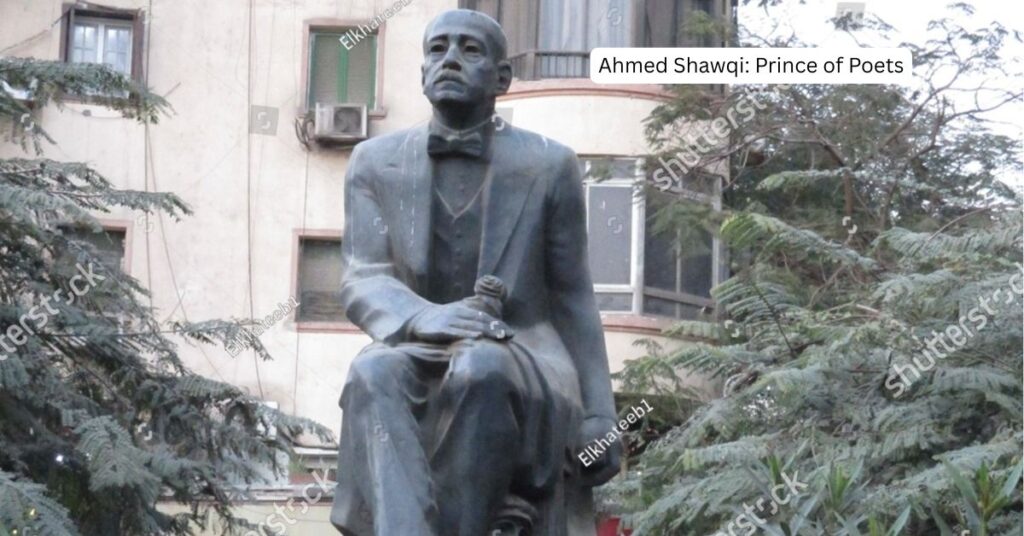Introduction
Ahmed Shawqi, widely celebrated as the “Prince of Poets” (Amir al-Shu‘ara), holds a distinguished place in Arabic literature and cultural history. His works bridged the classical traditions of Arabic poetry with modern themes, making him one of the most influential literary figures of the 20th century. Shawqi’s mastery of language, coupled with his deep patriotism and refined artistic sense, earned him recognition not only in Egypt but across the Arab world.
Early Life and Education
Ahmed Shawqi was born in Cairo in 1868 into a family of diverse cultural backgrounds, which enriched his worldview and literary style. He showed an early inclination toward language and literature, excelling in Arabic studies. His education took him beyond Egypt; he traveled to France, where he studied law and literature. Exposure to European culture and literature profoundly influenced his writing, allowing him to merge classical Arabic forms with modern ideas.
Literary Career
Shawqi’s career began in the court of Khedive Abbas II, where he composed poems praising the ruler and addressing social and political issues of the time. Over the years, his poetry expanded to encompass themes of patriotism, history, religion, and human values. His versatility made him equally adept at writing odes, elegies, and narrative poems.
Themes in His Work
- Nationalism and Patriotism – Shawqi passionately expressed love for Egypt and the Arab world, particularly during times of political struggle and foreign occupation.
- Cultural Heritage – He revived classical Arabic poetry while also celebrating Islamic history and values.
- Social and Moral Concerns – His works often reflected on justice, morality, and the role of literature in uplifting society.
Contribution to Arabic Drama
Beyond poetry, Ahmed Shawqi is also credited with laying the foundation of modern Arabic drama. He wrote several plays in verse, blending literary elegance with dramatic storytelling. His works such as The Death of Cleopatra and Ali Bek al-Kabir remain significant in the development of Arabic theatrical tradition.
Legacy and Recognition
In 1927, Ahmed Shawqi was officially honored with the title “Prince of Poets”, acknowledging his unparalleled contributions to Arabic literature. His influence continues to resonate through generations of poets and writers who admire his ability to balance tradition with modernity. Shawqi’s home in Giza was later transformed into a museum, preserving his manuscripts, works, and personal belongings for posterity.
Conclusion
Ahmed Shawqi’s legacy as the Prince of Poets rests on his unique ability to rejuvenate Arabic poetry while preserving its classical beauty. His verses continue to inspire, reminding readers of the enduring power of literature in shaping national identity, cultural pride, and human values. Shawqi was not merely a poet but a cultural reformer whose works remain timeless in the Arab literary canon.





